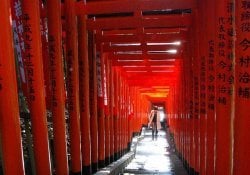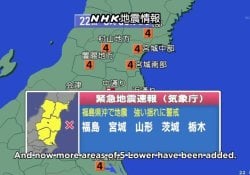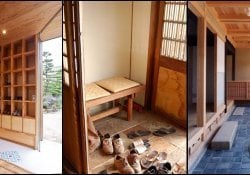It all started at the beginning of the 20th century when Japan was overpopulated after spending approximately 200 years completely isolated from the rest of the world. With the end of this period, Japan began to modernize and this caused the unemployment of thousands of peasants, which in turn caused economic and social problems, so the Japanese Government decided to encourage the emigration of its inhabitants through agreements with other countries such as USA, Peru, Mexico and Brazil. The first Japanese in Brazil arrived around 1908, with an average of 783 workers for the crops, in 1973 the number of Nikkei in Brazil was close to 200 thousand.
Nikkei (Japanese and descendants living outside Japan). Brazil is currently the country with the highest concentration of Nikkei, with around 1.6 million of them.
• Issei – Japonês que veio ao Brasil – primeira geração;
• Nissei – Filho do japonês – segunda geração;
• Sansei – Neto do japonês – terceira geração;
• Yonsei – Bisneto do japonês – quarta geração;
Índice de Conteúdo
visa for yonsei
In 1980, Japan needed labor and so laws began to be created that facilitated the entry of foreign workers into the country. In 1990, the “immigration control law” was amended, which allowed Nikkei up to the third generation (sanseis) and their spouses to enter the country and carry out any paid activity and with a visa relatively long stay. For the yonseis it is more complicated because they can only go to Japan if they are minors (after 16 years of age it becomes more complicated for the yonsei to obtain a visa) and if they are accompanied by their parents.
Work visa for yonseis
What many yonsei want and have been able to demonstrate to the Japanese authorities is the right to a work permit in the same way that the second and third generation have. Currently, this does not happen, as the yonseis can only obtain visas for dependents, but with the increasing need for manpower, among other things, the Japanese Government took the proposal for a broader visa for the yonseis to the country's parliament, which has analyzed the proposal. However, the initial expectation is to release the working holiday visa.
Working holiday visa
This type of visa allows the applicant to stay in the country for a certain period of time, while studying and even finding a job to help with expenses. The working holiday visa is granted through a reciprocal agreement between two countries to encourage travel and the exchange of experiences between their citizens. But this type of visa has some restrictions such as:
• Limite de idade do solicitante (geralmente de 18 a 35 anos);
• Limite de tempo de trabalho (EX: contrato de 3 meses, com 20 horas semanais);
• The applicant must have enough money to support himself (while looking for a job);
• O solicitante deve ter algum tipo de seguro de viagem ou saúde durante o período de permanência (a não ser que o país vá cobrir);
These are just examples of how the Working Holiday visa usually works.
The article is still halfway through, but we recommend also reading:
Working Holiday Visa for yonseis
Japanese deputy Jiro Kawasaki from the PLD (Liberal Democratic Party) party is part of the commission that deals with the lack of manpower and the incentive to enter the job market. See what the deputy said about the yonsei to Silvia Kikuchi from Alternativa Online:
“We started with an immediate proposal for a Working Holiday and with the condition of learning Japanese we want to increase the number of yonseis. We're looking forward to it. Under the Working Holiday system, people come and stay in Japan for a year so they can work, in the same way as fellows. But we thought about extending the period to three years just in the case of Nikkei. First of all, we are happy with the arrival of the Nikkei, but our main concern is with the education of the children. The Working Holiday goes out fast, it won't take that long. ”
Silvia asked: -Maybe a year?
Rep reply: -Yea!
The expectation is that within a year (the interview aired on 06/16/2017) the visa for yonseis, which will initially be a Working Holiday visa, will be released.
How Japan gains from the arrival of the yonseis
Japan has been suffering from an aging population and a shortage of manpower, among other problems. With the arrival of the yonsei, the lack of manpower can be easily solved, and with the proposal of the Japanese Government to offer (it will be more like a requirement, maybe even compulsory) the teaching of the Japanese language, this manpower can come to become qualified, as the Japanese Government wants there to be a greater integration of immigrants with Japanese society so that the problems that now plague the Japanese people can be resolved once and for all. In other words, the yonsei may end up being a great help to Japan and even to Brazil, as the relationship between the two countries tends to be strengthened and increasingly encouraged.
Article submitted by Matheus Takeda






